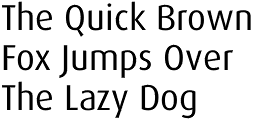Related Research Articles

An alphabet is a standardized set of written letters that represent particular spoken sounds in a language. Specifically, letters correspond to phonemes, the categories of sounds that can distinguish one word from another in a given language. Not all writing systems represent language in this way: a syllabary assigns symbols to spoken syllables, while logographic systems assign symbols to spoken words, morphemes, or other semantic units.
H, or h, is the eighth letter in the Latin alphabet, used in the modern English alphabet, including the alphabets of other western European languages and others worldwide. Its name in English is aitch, or regionally haitch.
N, or n, is the 14th letter in the Latin alphabet, used in the modern English alphabet, the alphabets of other western European languages and others worldwide. Its name in English is en, plural ens.
T, or t, is the 20th letter in the Latin alphabet, used in the modern English alphabet, the alphabets of other western European languages and others worldwide. Its name in English is tee, plural tees. It is derived from the Semitic Taw 𐤕 of the Phoenician and Paleo-Hebrew script via the Greek letter τ (tau). In English, it is most commonly used to represent the voiceless alveolar plosive, a sound it also denotes in the International Phonetic Alphabet. It is the most commonly used consonant and the second-most commonly used letter in English-language texts.
Transliteration is a type of conversion of a text from one script to another that involves swapping letters in predictable ways, such as Greek ⟨α⟩ → ⟨a⟩, Cyrillic ⟨д⟩ → ⟨d⟩, Greek ⟨χ⟩ → the digraph ⟨ch⟩, Armenian ⟨ն⟩ → ⟨n⟩ or Latin ⟨æ⟩ → ⟨ae⟩.
Y, or y, is the 25th and penultimate letter of the Latin alphabet, used in the modern English alphabet, the alphabets of other western European languages and others worldwide. According to some authorities, it is the sixth vowel letter of the English alphabet. In the English writing system, it mostly represents a vowel and seldom a consonant, and in other orthographies it may represent a vowel or a consonant. Its name in English is wye, plural wyes.

Z, or z, is the 26th and last letter of the Latin alphabet, as used in the modern English alphabet, the alphabets of other western European languages and others worldwide. Its usual names in English are zed and zee, with an occasional archaic variant izzard.
Phonetic alphabet can mean:

The (International) Radiotelephony Spelling Alphabet, commonly known as the NATO phonetic alphabet, is the most widely used set of clear code words for communicating the letters of the Roman alphabet. Technically a radiotelephonic spelling alphabet, it goes by various names, including NATO spelling alphabet, ICAO phonetic alphabet and ICAO spelling alphabet. The ITU phonetic alphabet and figure code is a rarely used variant that differs in the code words for digits.

The Allied military phonetic spelling alphabets prescribed the words that are used to represent each letter of the alphabet, when spelling other words out loud, letter-by-letter, and how the spelling words should be pronounced for use by the Allies of World War II. They are not a "phonetic alphabet" in the sense in which that term is used in phonetics, i.e. they are not a system for transcribing speech sounds.
A spelling reform is a deliberate, often authoritatively sanctioned or mandated change to spelling rules. Proposals for such reform are fairly common, and over the years, many languages have undergone such reforms. Recent high-profile examples are the German orthography reform of 1996 and the on-off Portuguese spelling reform of 1990, which is still being ratified.
Greeklish, a portmanteau of the words Greek and English, also known as Grenglish, Latinoellinika/Λατινοελληνικά or ASCII Greek, is the Greek language written using the Latin script. Unlike standardized systems of Romanization of Greek, as used internationally for purposes such as rendering Greek proper names or place names, or for bibliographic purposes, the term Greeklish mainly refers to informal, ad-hoc practices of writing Greek text in environments where the use of the Greek alphabet is technically impossible or cumbersome, especially in electronic media. Greeklish was commonly used on the Internet when Greek people communicate by forum, e-mail, IRC, instant messaging and occasionally on SMS, mainly because older operating systems did not support non-Latin writing systems, or in a unicode form like UTF-8. Nowadays most Greek language content appears in the Greek alphabet.
The APCO phonetic alphabet, a.k.a. LAPD radio alphabet, is the term for an old competing spelling alphabet to the ICAO radiotelephony alphabet, defined by the Association of Public-Safety Communications Officials-International from 1941 to 1974, that is used by the Los Angeles Police Department (LAPD) and other local and state law enforcement agencies across the state of California and elsewhere in the United States. It is the "over the air" communication used for properly understanding a broadcast of letters in the form of easily understood words. Despite often being called a "phonetic alphabet", it is not a phonetic alphabet for transcribing phonetics.
A phonemic orthography is an orthography in which the graphemes correspond to the language's phonemes. Natural languages rarely have perfectly phonemic orthographies; a high degree of grapheme–phoneme correspondence can be expected in orthographies based on alphabetic writing systems, but they differ in how complete this correspondence is. English orthography, for example, is alphabetic but highly nonphonemic; it was once mostly phonemic during the Middle English stage, when the modern spellings originated, but spoken English changed rapidly while the orthography was much more stable, resulting in the modern nonphonemic situation. On the contrary the Albanian, Serbian/Croatian/Bosnian/Montenegrin, Romanian, Italian, Turkish, Spanish, Finnish, Czech, Latvian, Esperanto, Korean and Swahili orthographic systems come much closer to being consistent phonemic representations.

The alphabet for Modern English is a Latin-script alphabet consisting of 26 letters, each having an upper- and lower-case form. The word alphabet is a compound of the first two letters of the Greek alphabet, alpha and beta. The alphabet originated around the 7th century to write Old English from Latin script. Since then, letters have been added or removed to give the current letters:

The Polish alphabet is the script of the Polish language, the basis for the Polish system of orthography. It is based on the Latin alphabet but includes certain letters with diacritics: the acute accent ; the overdot ; the tail or ogonek ; and the stroke. ⟨q⟩, ⟨v⟩, and ⟨x⟩, which are used only in foreign words, are usually absent from the Polish alphabet. However, prior to the standardization of Polish spelling, ⟨x⟩ was sometimes used in place of ⟨ks⟩.
The Greek alphabet has been used to write the Greek language since the late 9th or early 8th century BC. It is derived from the earlier Phoenician alphabet, and was the earliest known alphabetic script to have distinct letters for vowels as well as consonants. In Archaic and early Classical times, the Greek alphabet existed in many local variants, but, by the end of the 4th century BC, the Euclidean alphabet, with 24 letters, ordered from alpha to omega, had become standard and it is this version that is still used for Greek writing today.
C, or c, is the third letter in the Latin alphabet, used in the modern English alphabet, the alphabets of other western European languages and others worldwide. Its name in English is cee, plural cees.
A spelling alphabet is a set of words used to represent the letters of an alphabet in oral communication, especially over a two-way radio or telephone. The words chosen to represent the letters sound sufficiently different from each other to clearly differentiate them. This avoids any confusion that could easily otherwise result from the names of letters that sound similar, except for some small difference easily missed or easily degraded by the imperfect sound quality of the apparatus. For example, in the Latin alphabet, the letters B, P, and D sound similar and could easily be confused, but the words "bravo", "papa" and "delta" sound completely different, making confusion unlikely.

The Russian spelling alphabet is a spelling alphabet for Russian, i.e. a set of names given to the alphabet letters for the purpose of unambiguous verbal spelling. It is used primarily by the Russian army, navy and the police. The large majority of the identifiers are common individual first names, with a handful of ordinary nouns and grammatical identifiers also. A good portion of the letters also have an accepted alternative name.
References
- ↑ Alternative Police variant "Ζωή" (Zoí)